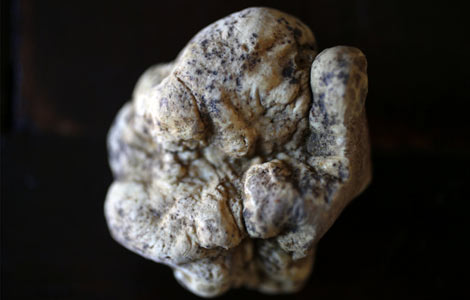Bolt from the blue as pigeons race eastward
Updated: 2013-12-30 07:45
By Martin Banks (China Daily)
|
|||||||||||
"We also have our national races from the great middle-distance to Barcelona. There are 30 national and six international races where every fancier can compete."
These races are very popular and get publicity worldwide. There are weekly reports and videos about the winners.
"Chinese fanciers are the biggest buyers of our national winners," Martens says. "They follow the national races closely and our ace birds are very famous in China. Every year, most of these transfer to China.
"So you could say that our pigeons have become as an important export product as Belgian beer, chocolate or chips."
The riches and glamor now on offer contrast with the sport's relatively humble beginnings.
Pigeon breeding and racing, which first took root in China during the Ming Dynasty (1368-1644), has become a source of income and a status symbol for the country's new rich, as well as a popular hobby. But its boom in China contrasts sharply with its relative decline in Belgium.
Sun Yang, deputy director of the Beijing Changping district racing pigeon association, says China is now home to at least 300,000 pigeon fanciers. One recent race in Beijing offered 23 million yuan ($3.8 million) in prize money.
Membership of pigeon federations in China has soared over the past 12 to 15 years and, for top pigeons, prices have increased two to threefold in 10 years, Martens says.
Its popularity in China is attributed in part to Gordon Chiu, one of the country's most talented pigeon fanciers. As a boy, Chiu spent countless hours with the pigeons his uncle kept on the balcony of his Shanghai apartment.
Chiu has pursued his hobby since the 1970s with "unbridled enthusiasm". In 1979, he took part in the first super long-distance race, in which 581 pigeons set off from three different provinces. Only 75 completed the epic 2,430-kilometer race but Chiu's pigeon was one of them.
Chiu is among the Chinese businessmen who have bought pigeons from Pigeon Paradise's auction house. It is a sign of the importance of the Chinese market that its website has been translated into Mandarin.
However, the downside to the "Chinese invasion" is that pigeon fanciers in Belgium are unable to compete with the high prices being paid.
Speaking recently at the second world pigeon fair in Kortrijk, Belgium, Frenchman Gilles Vanneuville complained: "It's daf. It's killing the sport. How do you expect a young person to start out?"
His concerns are shared by a compatriot, Marcel Candenir, from Lille, who says: "I find it too expensive. To pay 200,000 euros for a pigeon is not a normal price."
There have also been problems of theft from Belgian breeders, and racketeering.
Some, like Marc De Cock, who owns 600 pigeons in Temse, northern Belgium, have gone to extreme lengths to protect their prized possessions.
He has invested heavily in security for his birds, some of which are worth 100,000 euros. Watched by 15 video cameras, they have their own shower and solarium and are treated like top sports champions.
De Cock, who is looking to sell many of his birds to Asian customer, says: "The Chinese attach a lot of importance to prestige. Even if they don't want to breed them, or race them, they want to buy a luxury pigeon much like an art collector would like to buy a Rubens or a Rembrandt."
Belgium takes the sport, and birds in general, seriously. At Lede, in East Flanders, there is a museum dedicated to the hobby. There is even a finch-singing competition, recently recognized in the register of Flemish cultural heritage.
But the decline of pigeon racing in the country is reflected in figures. In the 1950s, the country had more than 250,000 official members in the Royal Pigeon Federation. Now there are only 30,000.
The current Chinese duty case has certainly ruffled feathers, but the association's chief executive, Nikolaas Gyselbrecht, who recently flew to Beijing to help negotiate the release of Bolt and some of the pigeons held by Chinese authorities, remains optimistic about the sport's future.
He hopes that incident will be an isolated one in what is otherwise seen as renewed international interest in the sport.
Related Stories
Belgium welcomes pact to prevent double taxation with China 2013-11-14 10:50
Travelers to Europe bypass attractions of Belgium, Brussels 2013-10-21 00:44
Shenzhen, Belgium planning to boost ties 2013-06-28 08:16
Annual dialogues to spur trade with Belgium 2012-10-16 09:59
Wen calls on Belgium to resist protectionism 2012-09-22 01:52
Today's Top News
Second blast kills 10 in Russian city
NSA hacking tactics revealed
Suicide bomber kills 16 at Russian train station
Antarctic blizzard halts rescue bid
Britain, China boost biz ties
Li says economy stable in 2014
Bigger role considered in the Arctic
Soyuz rocket places satellite into orbit
Hot Topics
Lunar probe , China growth forecasts, Emission rules get tougher, China seen through 'colored lens', International board,
Editor's Picks

|

|

|

|

|

|





